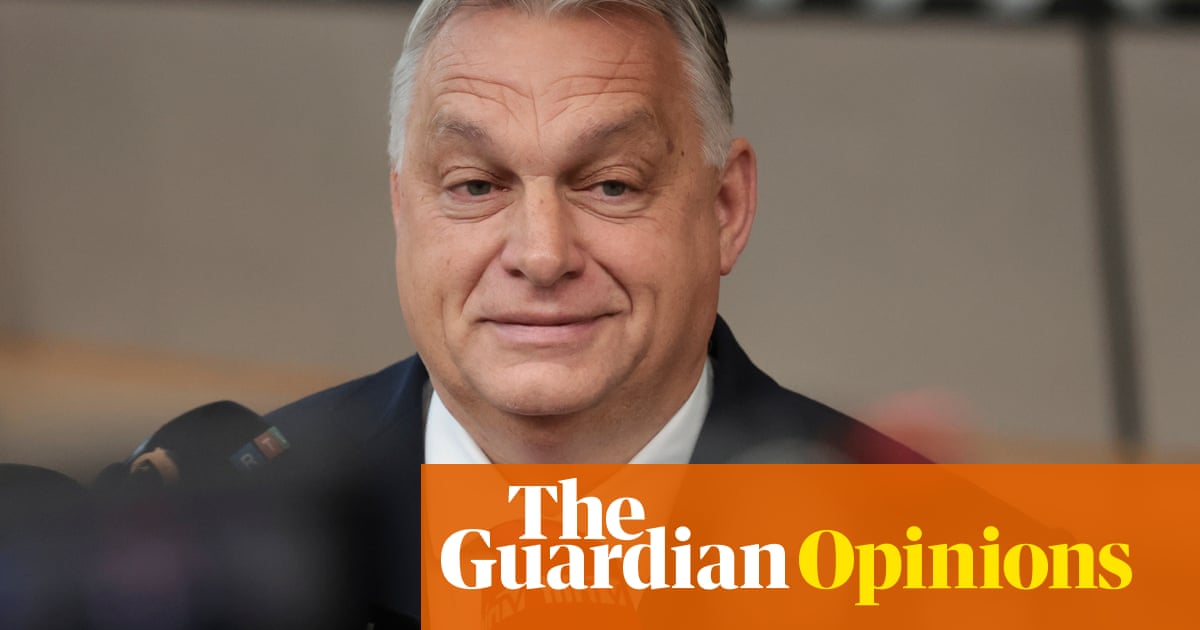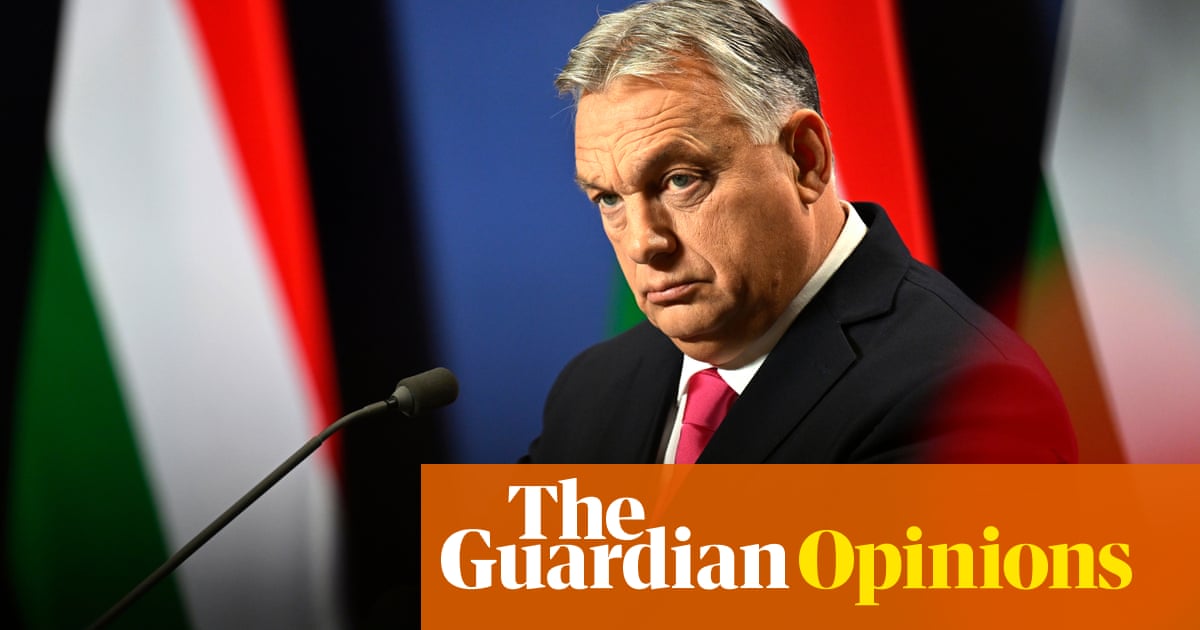
The decision by European leaders to open formal EU membership negotiations with Ukraine is historic – it offers hope to a people who are courageously fighting Russian aggression and sacrificing their lives for a European future. The agreement marks a historic new chapter for the EU. But legally, it required the unanimity of all 27 leaders, and it only became possible because Hungary’s prime minister, Viktor Orbán – who had threatened to block the opening of talks with Ukraine – left the room, in effect abstaining rather than wielding his veto.
The fact that 26 EU leaders, including Orbán’s supposed allies, signed up despite his opposition underscores the importance of this historic step. Yet it is tainted by the questionable means through which the agreement was achieved.
In a highly dubious deal that emerged in the run-up to the summit, the European Commission had unblocked €10.2bn, a third of an overall sum for Hungary frozen as punishment for Orbán’s dismantling of the rule of law. The Hungarian government made token reforms to restore judicial independence, but they fall far short of what is needed.
This was a capitulation to Orbán’s dirty blackmail tactics, and it undermines the EU’s credibility in enforcing the rule-of-law standards required by membership.
While Ukraine’s EU accession will be a lengthy process and presents immense challenges, these pale in comparison with the strategic importance of a European nation resisting falling under the control of Vladimir Putin. Moreover, hashing out technical integration details and finding compromises is actually where the EU excels.
But instead of coupling their decision on Ukraine with a firm, commonsense political strategy towards Hungary, European leaders have managed to send a mixed and disconcerting message that emboldens Orbán’s bullying.
This sets a perilous precedent: extortionists always come back to demand more. What is the EU’s gameplan? Are leaders willing to hand out huge sums of money and send Orbán out of the room whenever a unanimous decision looms?
The fact that just hours after absenting himself from the negotiations on accession, Orbán used his veto anyway to block €50bn in funding for Ukraine shows the wiles he is capable of. The accession process for any new member state is long and complex, and requires unanimity every step of the way. EU leaders are shockingly naive if they believe they have secured lasting support in exchange for their money. Orbán is likely to repeat this tactic, again and again, as he leverages Ukraine to unblock more money for his regime.
In the EU, good faith cooperation is an obligation in the EU treaties, and there’s good reason for that. The EU would quite simply fall apart if all leaders used threats and extortion to get their way.
The timing of the EU’s concession to Orbán is particularly disastrous, coinciding with Hungary’s “sovereignty protection bill” – a shockingly oppressive piece of legislation threatening journalists and civil society organisations with jail if they participate in international funding programmes. Its sole aim is to suppress dissent, muzzle independent media and quash opposition parties. The commission’s decision practically rubber-stamps this law and fails to muster a grain of solidarity with remaining independent voices in Hungary.
The EU’s failure to address Orbán’s transgressions is a grave mistake. He has a far-right authoritarian vision for Europe, and he seeks to reshape the EU along these lines. With the far right on the rise across Europe, Orbán eyes a 2024 victory for his allies in the European parliament elections, bolstered by recent election results in the Netherlands.
Orbán’s attempt to thwart Ukraine is also part of a domestic political calculation: it’s about stoking hate against foreigners and minorities to fire up his base before elections. It’s not six-dimensional chess; it’s an age-old, sinister playbook that always needs a new enemy – immigrants, the LGBTQ community, or now, Ukrainians.
It is a bitter irony, but the EU’s ineffectiveness in addressing the Orbán problem mirrors past mistakes made with Orbán’s ally in the Kremlin. EU governments failed to take timely action and employ consistent sanctions against Putin: the Nord Stream 2 Russian gas pipeline project gained approval mere weeks after Putin invaded Crimea. The pattern of appeasement is glaring. Orbán is learning, just as Putin did, that his actions carry no real consequences; the money will keep flowing. This sends a dangerous signal that even the most egregious violations of democratic principles will go unpunished.
The bargain struck with Orbán undermines the principles that are supposed to underpin the EU. The European parliament, often the lone champion of democratic values among the EU institutions, is gearing up for a fight. Efforts to censure the European Commission are under way, holding it accountable for failing in its legal role as the guardian of the EU treaties. European parliament legislators were the architects of the “rule-of-law mechanism”, which makes EU money conditional on upholding the EU’s founding principles (democracy, the rule of law and respect for fundamental rights), and we will persist in pushing for its consistent application.
There’s no way around it: European citizens must fight the far right at the ballot box. Throughout the continent, the progressive, liberal, pro-European majority must rally to secure every single seat from Orbán and his allies. The future of Europe hangs in the balance.
Katalin Cseh is a Hungarian member of the European parliament for the Renew Europe Group












